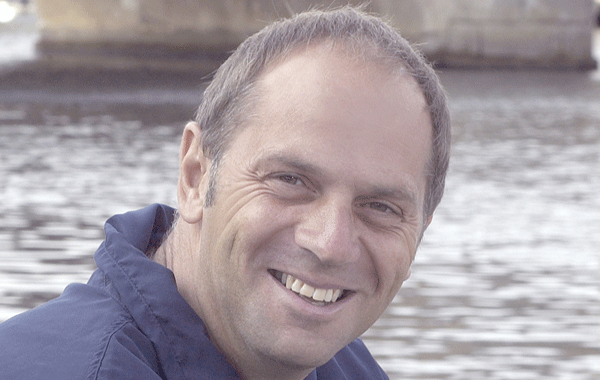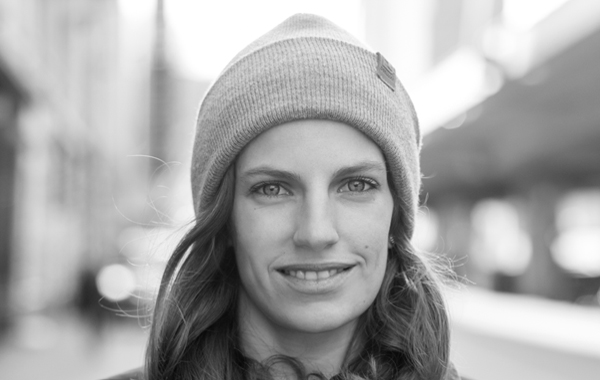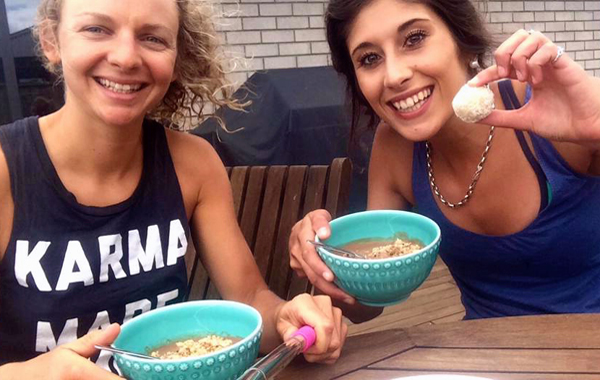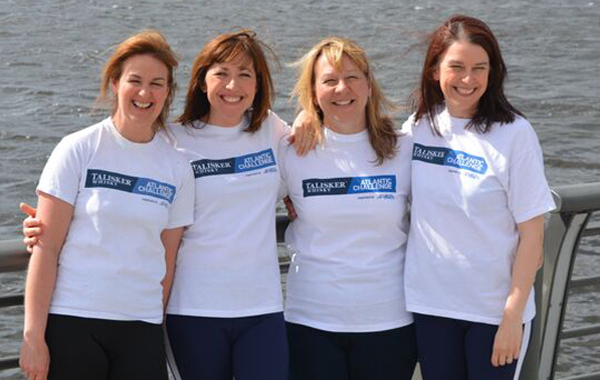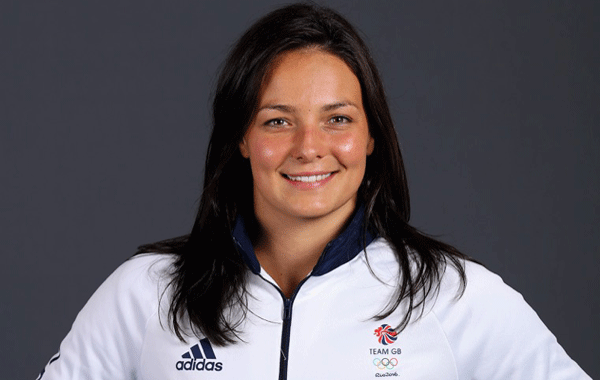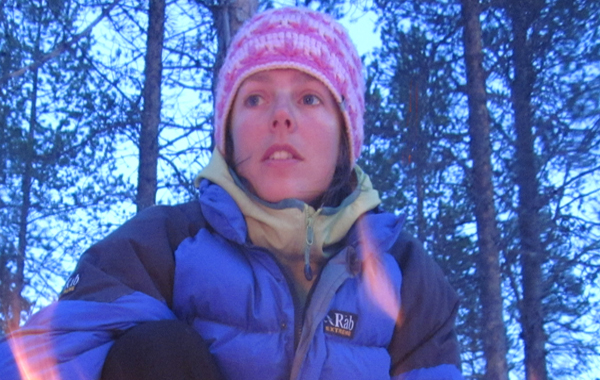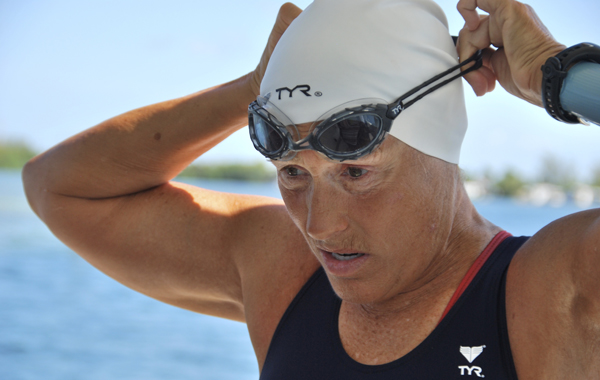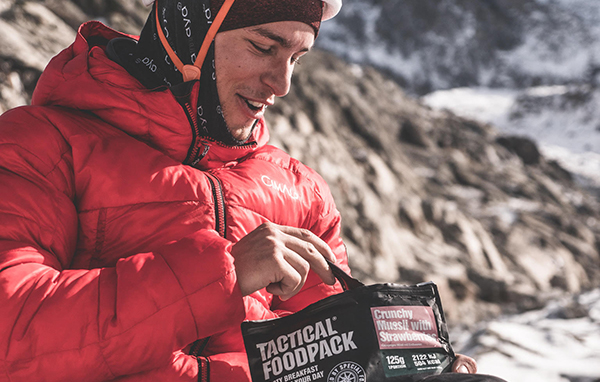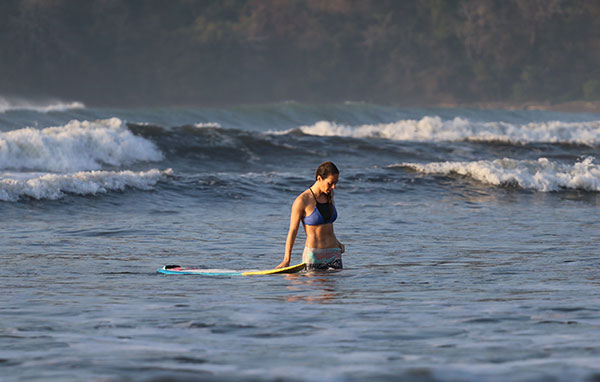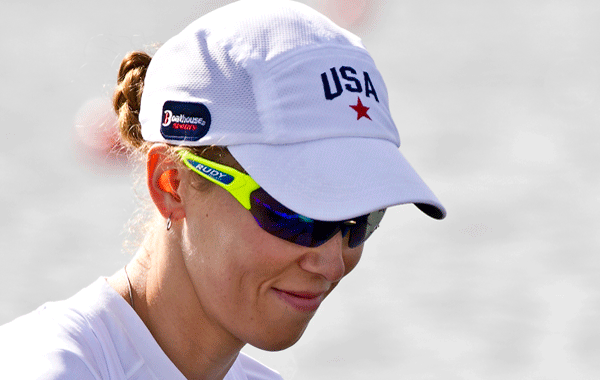
Megan smiling on the start line at London 2012,
MEGAN KALMOE was always supported in her sporting ambitions by her parents but it wasn’t until she was at university that she found her passion for rowing. Having to work hard at the sport at first she had no idea she would go on to compete at two Olympic Games and take bronze at one of them.
Her biggest challenge yet is to make it to Rio and in this uplifting interview she talks about the work that will be needed to get to Brazil as well her career highlights and struggles.
Where did you grow up and who encouraged you to get involved in sport?
I grew up in the Heartland – I was born in Minneapolis, and moved to St Croix Falls, Wisconsin when I was 13. The area I grew up in has a strong Scandinavian influence; and so the culture there is very much about work ethic, leading by example, and a type of toughness seen by outsiders as stubbornness. My parents were always supportive of me pursuing any kinds of interests or hobbies I wanted as a young person, but my dad always encouraged me to be an athlete. I started organised sports when I was in second grade, and he was always willing to help out coaching my teams or to practice with me in the yard at home.
At first sport was something I liked to do with my friends, but as I got older I started to really enjoy the competitive element more than the social aspects, and I started focusing on being the best, the fastest, the strongest at whatever I was doing. I had some very good coaches in high school who helped me to learn how to win, and how to be a good teammate.
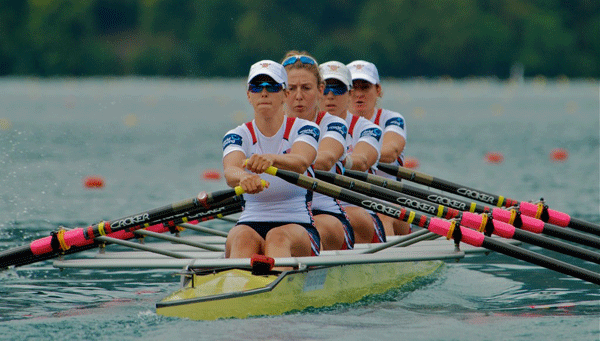
(L to R) Megan Kalmoe (stroke), Adrienne Martelli, Natalie Dell, Stesha Carlé – the women’s quad at the 2011 World Championships.
When did you start rowing and how quickly did you realise you had a real talent and passion for it?
I walked on to the rowing team at the University of Washington in the autumn of 2002. The team there offers open tryouts at the beginning of the year and actively encourages tall, athletic women from other sports to try rowing. I had met some women from the rowing team in my dorm during my first year, and they inspired me to attend tryouts the next year. I fitted the profile, but at the time I was about 25 pounds overweight and really out of shape. My technique and aerobic fitness were terrible, but my strength and power gave me a starting point. I loved the sport and the team right away, but I didn’t actually develop any talent until a few years later as an upperclassman. I certainly didn’t imagine as a walk-on that I would go on to be an Olympian.
What were some of the successes you had in rowing at college and how hard did you have to work to be taken seriously as an athlete?
I actually had very little competitive success as a collegian. As a team, the Washington women had the poorest competitive results in the history of the programme while I was there. I won very few regular season races, and never won a Pac-10 title or an NCAA Championship. I had some personal successes: I was selected by my teammates to be team captain as a senior, and I was named a 2006 All American. I also began my journey with the National Team while I was still in college. At the recommendation of my college coach, I competed on the US U23 Team in 2005. That experience led me to consider rowing at the senior level after graduation.
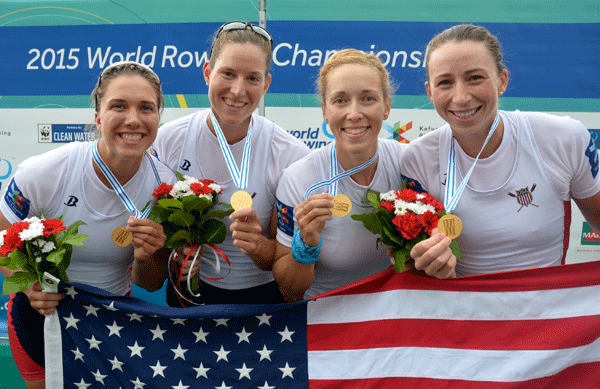
(L to R) Amanda Elmore, Tracy Eisser, Megan Kalmoe, Olivia Coffey – the women’s quad with gold medals at the 2015 World Championships.
Tell us about your selection for the national team and the journey it has taken you on?
I graduated from Washington in 2006. I walked at the big graduation ceremony, and then was on a red-eye to Princeton, NJ that night to join up with the national team camp. My expectations were hugely overblown for the first few months of camp, in that I had absolutely no chance of making it but I thought I did. I was really far behind the senior women in every aspect of my training.
So it took me about two years to get caught up and make my first senior team; it just so happened that my first team came in an Olympic year. I was selected to the women’s double sculls with my teammate Ellen, who was the same age and experience level as me. We raced in Beijing and finished fifth. We both knew within just the few strokes it took to get from the finish line in Beijing to the docks that we were already committed to training for London.
The process to get to London was challenging in a lot of ways. I was still relatively new to the sport and still had a lot to learn despite being an Olympian. I had to adjust my expectations and change paths a few times in order to get there, and things did not always go smoothly. The final selection in 2012 was one of the most gruelling, heartbreaking things I have ever done, but I was able to handle it because of all the turbulence I’d faced between 2008 and 2012. I raced in the women’s quadruple sculls in London and we won bronze, the first ever Olympic medal for the US in that event. I thought maybe I would feel a sense of completion or closure after that experience, but after just a few months on my own I was back training full time by December 2012 for the 2013 season.
Since then, I have had some of the best, most productive and successful years of training of my career. Maturing as an athlete has had its ups and downs but I have really enjoyed continuing to grow and learn during my third Olympic cycle. I had to face some major changes in 2013 and 2014 and get to know a whole new group of athletes but I am happier now than I have ever been while I have been on the team. Now we are just a few months out from 2016 and I am looking toward athletic retirement after this summer.
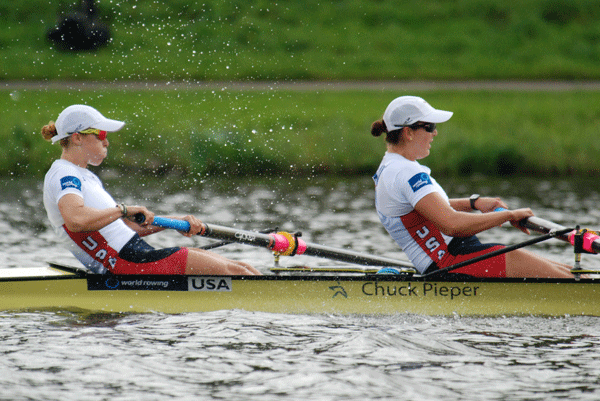
(L, bow seat) Megan Kalmoe and Kerry Simmonds (stroke) – the women’s pair at the 2014 World Championships.
What was it like representing your country at the Olympics and could you tell us about some of your Olympic success?
I have been on two Olympic teams, and the experiences were pretty different. My first team in 2008 was almost overwhelming because it was so special and exciting, and a little unexpected. I wasn’t actually very confident earlier in the season that I would make the team that year. That, and the Games being held in China made the entire experience just fantastic, and exotic, and a little bit magical. I had the time of my life that year, but I wasn’t actually all that prepared to handle all of it. We came home without a medal, which was not what we wanted, but our result was probably accurately correlated to our ability level at the time.
My second team in 2012 was more of a business trip. I was overjoyed and relieved to have made the team, but was much better equipped to deal with the stress and excitement and distractions and everything else that make the Games unique from any other competition. I was the only athlete in my boat that had Olympic team experience, so in some ways it was my responsibility to make sure that we did things right, and got the most out of our trip (aka: a medal). But, one of the best parts of making consecutive teams is getting to watch your younger teammates experience their first Olympic team, and remembering the excitement and the magic that goes along with that. Even with all the fun stuff, my teammates were very professional and we were all better prepared to achieve our goals while we were in London.
You’re currently training for Rio. What’s the overall ambition for those Games and are you as hungry as ever for success?
After London I wasn’t totally sure that I wanted to come back to training. For every part of training that I love, there is something that I don’t (especially erg testing). I was also a little uncertain about coming back to training with a totally new group of athletes, as so many of my teammates from London had retired after 2012. But now that I have been fully immersed in training and competition for the past three years, I am really looking forward to the rest of the Olympic year. I have raced two different events this quadrennium, the women’s pair and the women’s quad. I’ve had success in both, and so I get asked a lot which one I am hoping for for this year.
What I can say is that the US women’s team is working incredibly hard to try to have our best Games this summer, and I would be honoured just to be a part of it. The talent is so strong, and the team is so deep, the first step is just managing to find a place on the team. The women I train with don’t care what I did last year, or that I have made Olympic teams in the past. I don’t think that’s a bad thing; I think it’s what makes our team as strong as it is. It’s exciting to be in an environment where so many talented people are always working to be better. No one is afraid to push past where the team has gone before in order to redefine what it means for our team to be successful. It’s my job to keep up.

